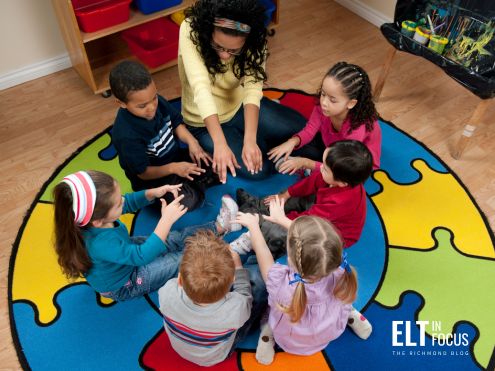Schools have important social and scholastic influences
In the last blog, we began looking at the social effects of the loss of school time on our students. We sometimes forget that essential skills are fostered during school hours that our students don’t develop in other places. This became obvious in my conversations with teachers during the first weeks of the pandemic; most were convinced that sticking to the curriculum was their highest priority. Very quickly, however, it became clear to them that attention to the emotional well-being of their students was crucial. Without this, they were not going to be able to move forward with even the most basic educational tasks.
We sometimes forget how social skills are included in virtually every interaction we have in the classroom, and these need to be heightened even more in distance learning so that students feel seen, heard and considered. Because of my work, I am in a very fortunate position of being able to speak with teachers all over the world - in public and private sectors. During the quarantine, they shared with me their experiences and the common theme was that all of them felt that everyone else was doing a better job than they were. In fact, they were all finding different levels of success and were too insulated to see that. So, to give them a more global perspective of what was happening in other schools and in other countries, I searched for more information that I could pass on to them. I found the organisation HundrED, based in Finland, whose mission it is to contact as many schools as possible from all over the world. The goal is to gather, analyse and share - on an international forum - the best teaching practices.
When the quarantine began, the group changed their focus slightly in order to concentrate on the ways teachers were coping with the crisis, and what methods they used to successfully maintain a connection with their students. What they found was that first and foremost, teachers needed to foster the emotional well-being of their charges to be able to help them to move forward in their studies to any degree.
The affective domain becomes the priority in distance learning
In the Abril 2020 HundrED Research Report, Andreas Schleicher, one of the group’s founders, said, ‘The changes that are essential happen during times of crisis.’ What he was referring to was not only the need for educators to become more adept in using technology as a tool to give classes, but to recognise the importance of strengthening the affective domain. By creating a strong affective domain, both teachers and students were able to feel more confident during a time of uncertainty and disorientation. It was clear that without this safe emotional space, neither students nor teachers could move forward effectively.
The direct link of emotions to learning
Why was this focus on emotional well-being such an important decision? We only have to understand the dynamic of how the brain receives messaging to understand this. Are you ready for a little biology? Don’t worry, this is simple: information enters the brain by travelling upwards through the spine and into lower cortex - the emotional center of our brain. If the brain perceives a ‘threat’ of any kind, it immediately goes into ‘red alert’. What this means is that learning stops and will not continue until the brain is in ‘stand down’ mode.
We can easily say that during the crisis last spring, students were confronted with a myriad of factors that was very likely perceived by the brain as ‘threats’:
- Their social and scholastic routines completely changed or virtually disappeared
- The messages coming from their parents, their teachers, their schools and their governments were incomplete and confusing
- Regardless of their relationship with their teachers, they had drastically reduced or a complete absence of time with these authority figures
- The lack of technological experience of their teachers became apparent
- Though they may not have demonstrated symptoms, some students took on the anxiety of their parents with respect to loss of work
- Physical and/or emotional abuse was intensified, and the relief of going to school to escape these experiences has vanished.
These are only a fraction of the emotional roller-coasters our students were experiencing and all this was exacerbated by the limited contact they had with their social group – peers that could have helped them to process these drastic changes.
The Covid-19 virus itself has taken a heavy toll on the lives of citizens all over the world; however, what has emerged is, above all, the emotional effects it has had on our youth. To move ahead, aside from the obvious need for more training in technology, teachers will need to find ways to strengthen the affective domain in their virtual or physical classrooms. Included in this training will be learning to recognise different levels of mental illnesses that were either present before the quarantine, or appeared during and afterwards.
In a recent study on words most used in stories written by students during this crisis, the word ‘we’ was the top winner. Our youths are aware that being part of a supportive community is fundamental to moving forward. We can take this to heart and remember that sharing information on best educational practices is where to start. This blog is Richmond’s answer to this journey.
Richmond is dedicated to finding and sharing key ideas that will help you to move forward towards innovation, and in the next blog, we’ll share some concrete ways you can strengthen the affective domain in your online or face-to-face classes. Until then, we want you to benefit from resources we’ve been gathering that you can use online or in the physical classroom to help your students to engage a bit more in their studies.









